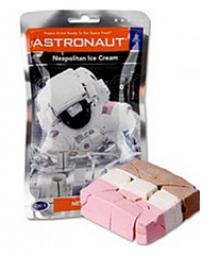Space Food
You really know how important a clean kitchen is if you live in the same small place for weeks. Everyone needs to have a clean kitchen so they are healthy. A dirty kitchen can make people sick. Astronauts are people who travel on space ships. They need to have a very clean home. They travel far from Earth. We need clean kitchens everywhere on earth and in space.
Astronauts have to solve two problems: how to get food and how to keep their spaceship clean. They need to solve them in order to stay alive. They are in a spaceship far from Earth, and they need to take care of everything themselves. They need to be sure they have what they need to live there, because the astronauts may be in space for weeks.
Here is how they solved the food problem. At first, the astronauts took tubes of food with them into space. They would squeeze a tube and eat semi-liquid food. It did not taste great, but since they did not need to take dishes or silverware with them, they had no dishes to wash.
Today’s spaceships have a bigger menu. Astronauts can eat from bowls. In fact, they take cereal and other standard foods with them. The foods are packaged in special containers to keep them fresh. They use knives, forks, and spoons. One unusual item on their table is a pair of scissors. They use the scissors to open the food packages. They can eat right from the package.
They have a kitchen on the spaceship. Its oven can heat food to 170 degrees. The kitchen has water and sets of meals that come on trays. The astronauts choose their menu before they go into space. They take a lot of food with them.
The astronauts keep bread and fresh fruits and vegetables in a special food locker. Most flights take tortillas. They package the tortillas in an oxygen-free wrap so they stay safe.
How do they keep the kitchen clean? They do not have to worry about mice or other rodents. They make sure that there are no rodents before the ship leaves. But sometimes mice travel on the ship. Those mice are part of experiments. They live in cages.
How do astronauts keep their trays clean? That is another health problem the astronauts solve. They need to stay healthy in space. To carry a lot of water to wash trays would be a lot of extra weight. They pack wet wipes in plastic bags. They use them to clean trays. So, their kitchen is clean and they stay healthy.
